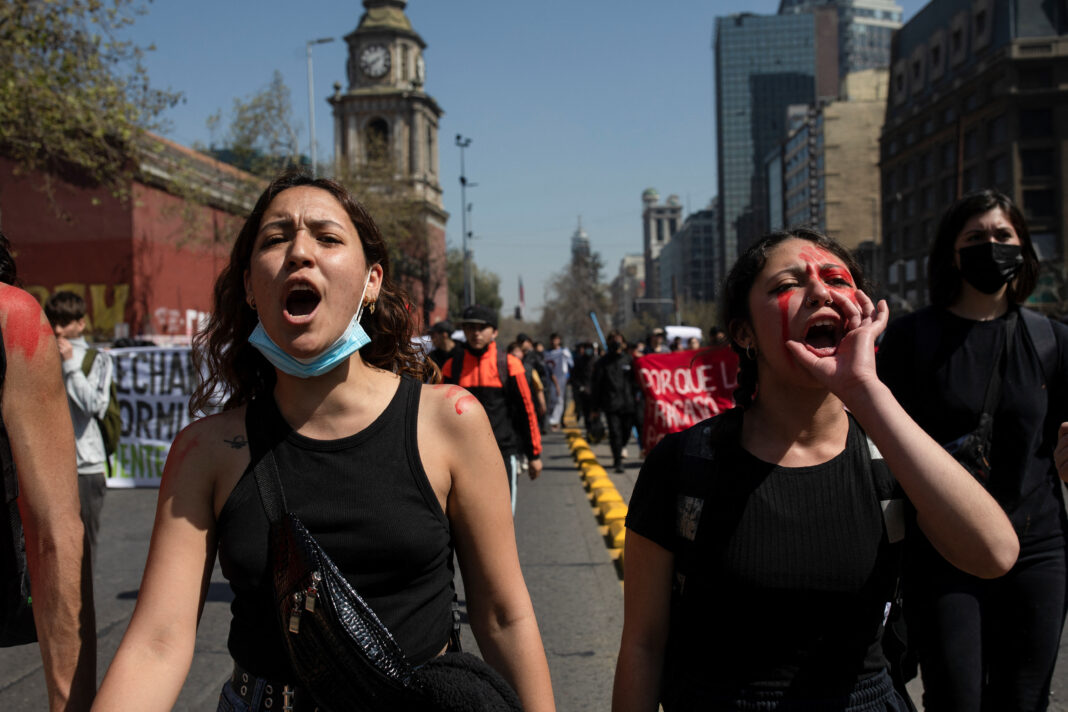The document submitted for popular referendum on September 4th has proven to be too radical. Chileans want change, but they want a more moderate one than that proposed by the new constitution
After an intense constituent moment, Chile said no. The text that came out from the Constituent Assembly, elected in May 2021, was rejected with a striking 61.9% of the votes. The participation rate was impressive as the result itself, around 86%, facilitated by the mandatory status of the vote. Though shorter compared to other constitutional processes in the region, many things have changed in the country during the last two years. The “rechazo” of the proposed constitution marks the end of an important phase, but not necessarily of the whole process.
The causes of the rejection
Chileans want change, as demonstrated by the 78% vote in favor of a new constitution during the first referendum of 2020. But they want a more moderate one than that proposed by the new constitution. In fact, the document submitted for popular referendum on September 4th has proven to be too radical. The text represented an institutionalization of the social demands that came out of the 2019 protests, which still represent an important part of the popular will for change. Yet, the constitution seems to have gone beyond those for most of the population.
According to a recent survey by Candem, the main public opinion investigation firm in Chile, there are different reasons behind the “rechazo”. At first, the discontent with the formation of the Assembly, in particular with some of its members, which helped fueling the campaign against the constitution that depicted the process as “not serious enough”. Among these, the personal story of Rodrigo Rojas Vade, an activist that became popular in 2019 by denouncing the high costs of cancer treatments in Chile’s health systems he had to pay and then admitting he was lying after an investigation from La Tercera.
Secondly, 35% of the people who rejected the document did so due to the topic of plurinationalism and indigenous representation. The conflict between the State and the indigenous peoples, with the Mapuche being the most prominent one, is an open wound in the country’s past and present. The seats reserved to indigenous representatives in the Assembly (and the presidency of Elisa Loncón, of Mapuche origin, during the first half of the process) together with the articles related to indigenous autonomy tried to reconciliate the parties of the conflict. But the result produced was quite the opposite since some of these changes were perceived as too extreme. The list of reasons for the “no” continues with the “political and economic uncertainty” caused by the new text, restrictions on private property, health and education, and for the changes on the political system.
The elements of continuity
Although much has to be started from scratch, such as the new assembly and constitutional text, there are some elements of continuity that will pervade the next steps of the process. The gender parity clause of the Assembly (formed by 50% of male and 50% of female representatives) is still shared by 77% of Chileans. This, together with the fact that the article on abortion and on other instances brought forward by the feminist movements in the country were only the 8th reason for rejection, indicates that a new awareness is present in a good share of the population.
57% of the population also agrees on the fact that some seats have to be reserved to indigenous representatives, but less than what they were saved this time, and based on a proportional share of indigenous on the total population. Additional elements of continuity will be derived from the main reasons of the “apruebo”, those who votes yes, which comprehend social and health rights, changes to environmental protection laws and structural changes in the country’s economic and political system. Even if this text was rejected, these instances cannot be ignored anymore. Without a doubt, this new awareness will continue influencing the next phases and the final constitutional document.
The influence of the “rechazo” on Boric’s government
The consequences of this rejection on Boric’s government have already manifested themselves through a painful reshuffling of his cabinet. Izkia Siches, now former interior minister and one of Boric’s most loyal allies, was the biggest name to leave, among other relevant removals. At the same time, the approval rating of the young Chilean president has dropped slightly after the referendum, going from around 38% to 33%, reaching its lowest point on the record. Now, new consensus has to be gathered in order to start a new process and form a new assembly, but this won’t be easy considering the opposition of those who suggest waiting or just reforming the 1980 dictatorial constitution, mainly from the center-right and right of the political spectrum.
In 2019, much effort was needed to get to the “Agreement for Social Peace and the New Constitution”, the compromise among political parties that allowed the whole process to start. After the failure of this first attempt at writing the new constitutional document, it will be complicated to mobilize the people and political parties once again.
Nevertheless, approving a new constitution remains the top priority on Boric’s agenda, as witnessed by his recent speech at the 77th UNGA in New York, where he said that “very soon, Chile will have a constitution that will satisfy us and make us proud”.
The constitution represents a double-edged sword for Boric. If successful in passing a document that produces shared consensus, it can become for him a way to re-gain approval and to link his name to what will be an historic moment for the country. Consequently, the president will also be able to pass new reforms in the framework of a more progressive constitution that can help him guide the new laws on Chile’s welfare state, the environment and inclusion policies. On the contrary, if Boric fails once again, it will represent a potentially lethal failure for his government. Given the magnitude of the task, it will drain most of the president’s focus and efforts in the next year or so. Not delivering on a document would mean that all this time was lost for nothing.
Discover the eastwest Academy.
Discover all the Eastwest European Institute’s courses.





